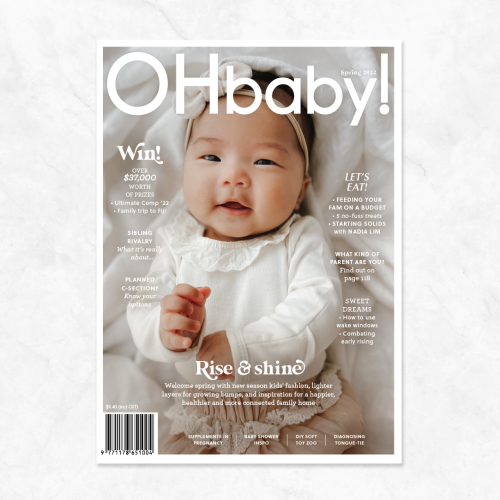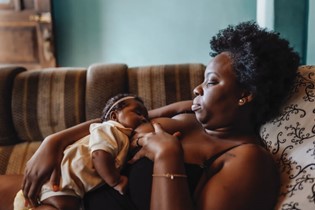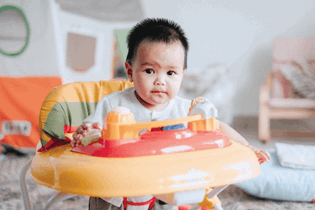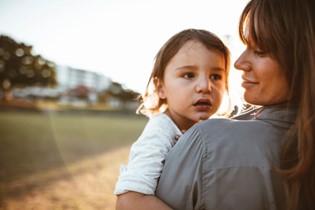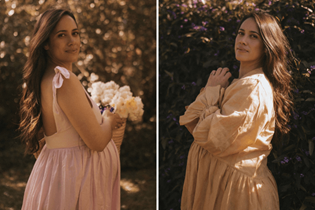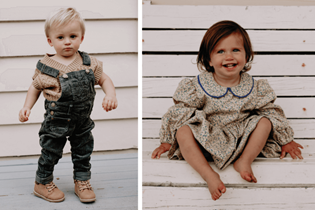Infertility doesn't have to be a lonely experience

Infertility is often a taboo subject, making the experience of those going through it unbearably lonely. Holly Jean Brooker talks to two families seeking to change this.
Infertility is often an unexpected journey, an experience that can be fraught with difficulty, big emotions, physical stress and disappointment. Deeply personal and often lonely, infertility can be awkwardly tiptoed around by well meaning friends and family who aren't quite sure what to say.
Friends Natalie Corke and Hannah Phillips can relate to this. During the intense difficulties of her infertility journey, it was difficult for Hannah to open up about her struggles, while Natalie was desperate to support her friend as best she could but was unsure how.

Fast-forward five years, and the duo have started a charity: the Aurora Foundation, dedicated to helping family and friends understand how to support their loved ones going through infertility. Using their personal experiences and that of others, they've created a community that embraces the highs and lows of these difficult shared experiences.
Like most young couples, Hannah Phillips, a police officer, and husband Graeme, a Rugby Talent Agent, spent years travelling, adventuring, and building their careers in the early years of their relationship. When they turned 30, their attention turned to creating the family they had always dreamed of.
After six months of trying to get pregnant without success, the reality that they might need to seek professional help came when a UK friend shared their great news over FaceTime, holding up an ultrasound. Graeme reflects, “We were thrilled for our friends. But it was a bit of a wake-up call for us. After that phone call I said to Hannah, “Are you okay?”, She said, “Yes”, but we knew that something was off". Hannah explains, “I had always kept fit and healthy, so when we started trying it never entered my head that we would have any trouble”.
For Hannah, accepting help was difficult. It took two years before she was ready to talk to their GP to find out why it was taking so long to conceive.
Fortunately, the couple had health insurance to speed things up. Their GP sent the couple for tests which showed that polycystic ovaries were impacting Hannah’s ability to ovulate. Medication to encourage ovulation was prescribed, along with surgery to remove the cysts and ovarian drilling, with the recommendation to then wait 6-12 months for healing. “It was a really intense time and I tried everything I could to get pregnant, but we just didn’t have any luck”, Hannah explains.
At this point, the couple were feeling pretty helpless. And one by one, friends around them were getting pregnant and having babies. “I vividly recall seeing strangers in the mall or supermarket who were pregnant and glowing or holding their newborn baby, and my heart ached to be like them. It was incredibly lonely and just really hard to process”, Hannah reflects. “Nothing can prepare you for infertility.”

Eighteen months after the surgery, a friend recommended they see Dr Neil Johnson at Repromed, a fertility clinic in Auckland. Hannah explains, “Taking the step to go to a fertility clinic felt pretty daunting but meeting Neil was so reassuring, he was one of the kindest specialists I had met. Up until this point I had only heard about IVF so it was encouraging to hear about the less invasive IUI treatment and Lipiodol as alternative options for me”.
“It was such an overwhelming time. There were so many big decisions to make and so many unknowns. Timing ovulation, getting blood tests and scans, taking medications to help prep the womb etc. I had opted for IUI, but the statistics for success were really low for us with this treatment, I had about an 11% chance of becoming pregnant after the first treatment. We decided I should have the Lipiodol flush first, hoping it would give my womb the boost it needed."
"There was a lot going on emotionally, mentally and physically, and I had a full on job so I had to push down all of the emotions around it to cope. It was all too much.”
The treatment went well with no hitches and then it was the waiting game. Two weeks after the treatment, Hannah had blood tests to find out if they could finally be pregnant. She recalls, “We were expecting a call from one of the Repromed fertility nurses with the results, but as I was working night shift, I asked Graeme to take the call as the waiting and anticipation would impact on much-needed sleep before working another night shift ahead”.
Graeme reflects, “I took the call, and it was really hard not to call Hannah straight away but I knew she needed a decent sleep. I sent her a text to say I was in a work meeting but was still waiting for results to put her off and delay letting her know. When I got home from work she was sitting on the couch waiting for me – it was her birthday. She had asked for a certain book she’d been wanting, so I had one all wrapped up for her. But when she opened it, it wasn’t the book she had requested, I had bought her a baby journal book! She was pregnant! We were over the moon, it was the best birthday present she could have had,” Graeme laughs.
Today they have a 14-month-old baby boy, well worth the wait after five fraught years of infertility. And after having her son, Hannah was shocked to discover she wasn’t as alone during those years of infertility as she thought she was.
“After I had Hunter, I was at my antenatal mums coffee group and wondered, 'Am I the only one here who has had fertility treatment?’ Turns out half of us had! Seven of the thirteen mothers there! None of us had spoken about this the whole time that we were together during pregnancy! We had all struggled in silence, yet now here we were with our babies. A friend once told me, they are called 'dawn babies’, meaning the light after a period of darkness”.
“This is when I decided to create the Aurora Foundation,” says Hannah. “I wanted to create this supportive community to help others on the difficult journey of infertility to feel that they can open up about it, to be honest about their experiences and get that valuable friendship support.”

And speaking of friendship, Hannah asked her good friends Natalie and Adam Corke to join her and Graeme in the venture, as they had been such a valuable support system during their journey. “When I did feel okay to open up, Natalie would listen with such compassion. When she had become pregnant naturally herself, she shared her news to me with so much kindness and empathy it touched me deeply,” Hannah remembers.
The two couples had met at CrossFit years earlier and hit it off, and while it had been difficult to talk about infertility together during these previous years, both Nat and her husband Adam were really keen to be involved with the Aurora Foundation with Hannah and Graeme. All four are involved in strategy and planning and working to their individual strengths. Adam laughs, “I’m also great at making cups of tea and providing moral support,” while Nat chips in, "And the guys are really great at social media and web stuff too which isn’t my forte”.
It might seem strange to some that Natalie and Adam, a couple who’ve never experienced infertility might want to be involved in the foundation, but Nat explains that’s exactly the reason why. “Around 90% of my friends have had problems with conceiving and loss. During my own second pregnancy I had many friends at the same time going through a really challenging journey of fertility issues, miscarriages, going through IVF – it was horrendous for them and it made me feel incredibly guilty that it was so easy for Adam and I to conceive. I really felt for them.”
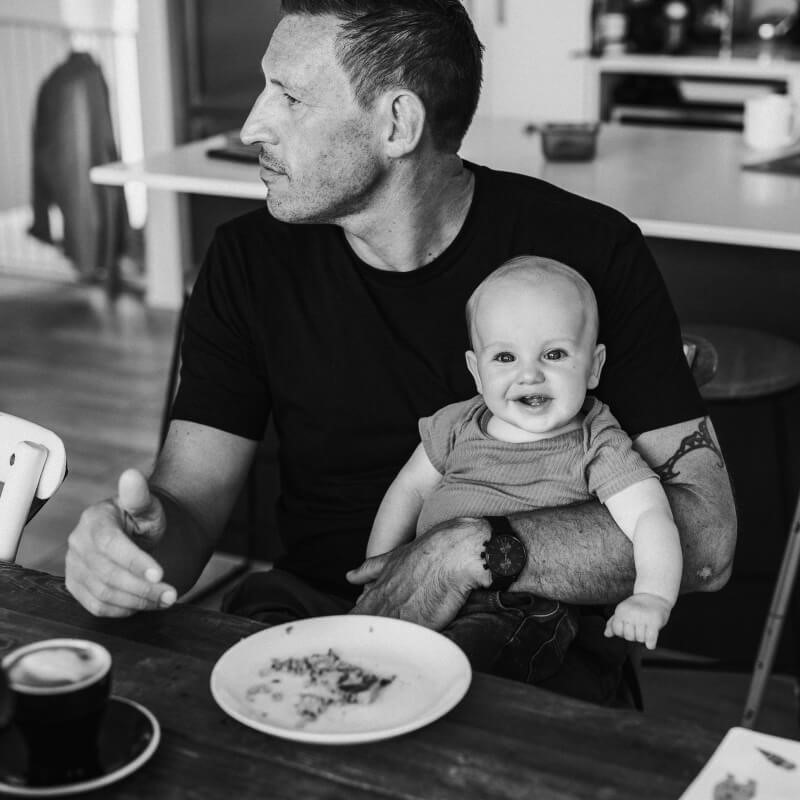
"Hannah had shut down emotionally during her journey,” Nat says, “but I knew she really needed someone and I didn’t want to give up on giving her the opportunity to talk. I kept asking her out for coffee and would ask how she was going. Often she wasn’t able to open up, and that was okay. But other times she was ready to share and be vulnerable and we would shed tears together and have the hard conversations.”
Natalie admits it wasn’t always easy to know what to say. “When a friend has a miscarriage, there’s no way you can say the right thing – that’s because there is no right thing. I think that just being there with kindness and compassion and being a listening ear is enough.” Having been through her own birth trauma and counselling, she has seen first-hand the value of having a safe, listening support.
Hannah agrees, “Looking back I was a very different person during that time. It was all so hard, I just shut down emotionally. I really changed as a person, I became quite hardened and cold and struggled to open up with anyone about what I was going through. At the time I thought I was handling my situation fine, but in reality I was pushing it down and not facing it. My husband wanted to talk and suggested therapy but I am pretty stubborn, I didn’t want to get help. I think I also carried this journey on my own and shut him out of it, which is something I’ve since seen and apologised for”.
Hannah’s husband Graeme recalls this experience with kindness and empathy, explaining, “It was hard not being able to truly support her how I wanted to, but I also understood that she was in survival mode and I needed to respect how she needed to deal with it.” For the two couples, who live just a few streets away from each other, their passion for connecting with other people going through similar struggles, is clear. It’s a difficult road, but it's one they have each travelled in different ways. Their hope is that by openly sharing their experiences, they can encourage more dialogue and conversation for anyone who finds themselves affected by infertility and loss.

Words: Holly Jean Brooker
Photography: Paper + pearl photography
Providing support for those on the fertility journey and guidance for those wishing to support. Visit aurorafoundation.org.nz or @aurora_foundation_nz on Instagram.

AS FEATURED IN ISSUE 59 OF OHbaby! MAGAZINE. CHECK OUT OTHER ARTICLES IN THIS ISSUE BELOW
